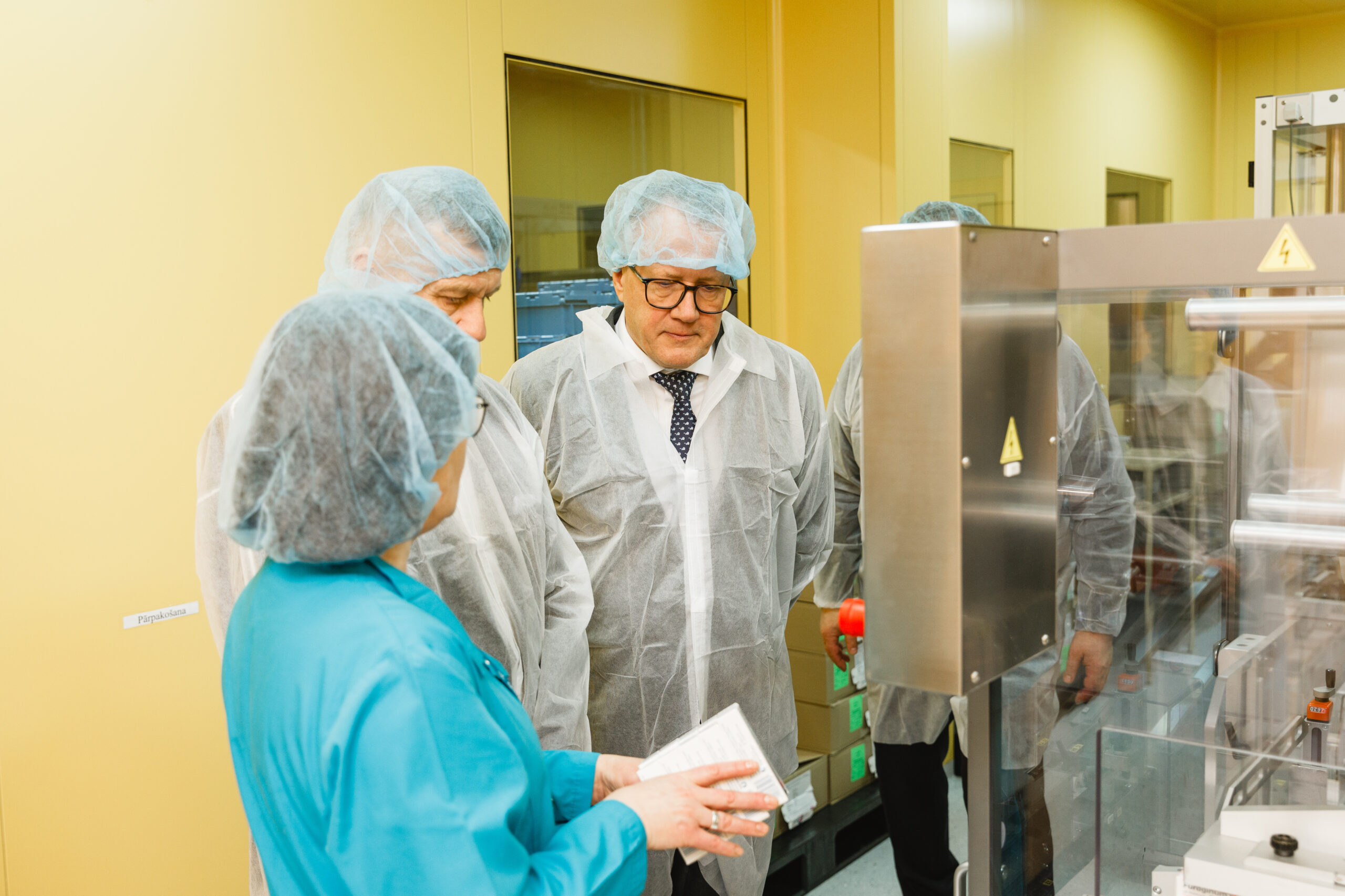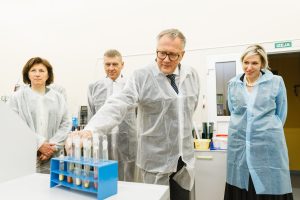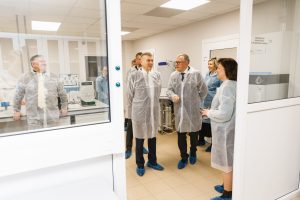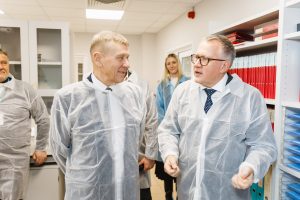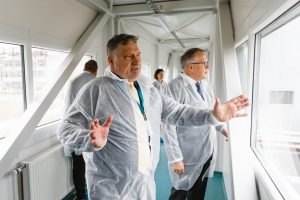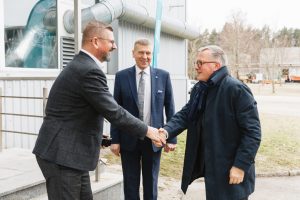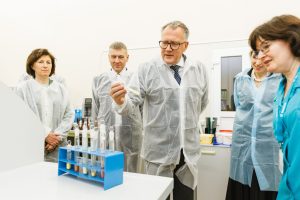On Friday, 8 March, the Minister of Finance of the Republic of Latvia Arvils Ašeradens, visited the Latvian pharmaceutical production company JSC Olainfarm during a regional visit. During the meeting, the senior official and management of the company discussed the availability of European Union (EU) programs and their compliance with the development needs of Latvian producers, issues of human resources development and cooperation of the company with educational institutions. Discussion were held on the solutions, how the state can help the company continue to develop successfully.
“I see that a new, positive development stage is expected for Olainfarm: the process of changing shareholders has been completely completed, there is a clear, understandable and serious investment plan, as well as well considered plans for the growth of export volume oriented to the European market. I am glad that the funds of the EU fund programs have been successfully invested in research, development of new products, technological development, greener production process and improvement of efficiency. It is important that the company also has plans for cooperation with the large Latvian universities of sciences – RSU, RTU and LU, because the biotechnology and pharmaceutical industry is currently one of the fastest growing economic sectors in the world. “Olainfarm” has a strong growth potential, therefore I wish you good luck and let’s keep our fingers crossed that it succeeds in becoming the next Latvian company, whose sales volume and growth rate would place it in the TOP 5 of Latvia!”, says Minister of Finance Arvils Ašeradens.
The Minister listened with great interest to the detailed and convincing information provided by the management team – Andrejs Leibovics, Jānis Buks, Juris Bundulis, Jānis Leimanis, Andris Jegorovs, Ansis Pekšs and Evita Osīte about the development of the development strategy and personnel policy of the company, and become acquainted with the Olainfarm medicine production plant and as well as planned investment projects already commenced.
Thanks to the available state and EU structural fund programs, the company will invest more than 40 million euros in the coming years in the modernization of the production site, digitalization, expansion of production and also in green energy projects, which will enable even faster and more sustainable growth of the company. Several of the investment projects are implemented within the ALTUM program of large investment projects, with the aim of introducing at least 10 new products into production and increasing export volumes in new markets by at least 80%. The total investment plan of Olainfarm for the next five years reaches 100 million euros.
“As a Latvian company and manufacturer, we are interested in tax policy being predictable and competitive at least at the level of Baltics. Every year we pay an average of around 13 million euros in taxes to the state budget in Latvia, the majority of which consist of labour taxes. However, when looking at the development trends of the labour market, it is important that the labour tax burden does not increase. That would limit the opportunities for us and other employers to offer competitive remuneration to qualified specialists who are also welcome in the markets of other countries,” explains Juris Bundulis, Chairman of the board of JSC Olainfarm, noting that the company each year increases the employee remuneration fund, invests in a basket of additional benefits, and also implements social responsibility initiatives aimed at the development of education and science in Latvia and preparation of young specialists. For example, a scholarship program for future chemistry teachers was launched last year, but on a daily basis the company cooperates with RTU Olaine College of Technology, University of Latvia, Riga Technical University, Riga Stradins University and other educational institutions to help create skills-based education.
During the meeting, the parties also discussed the need to further strengthen Latvian pharmaceutical companies and their competitiveness. For example, 94% of the Latvian medicines market is made up of imported medicines, but by expanding the supply of products from domestic manufacturers, we can both increase competition and drive down prices through greater use of generic medicines. Increasing the market share of local manufacturers in Latvia would also contribute to greater security of physical access to medicines for Latvian patients, reducing the risks of supply disruptions and, as a result of threats, ensuring the production of medicines and reserves for the forces of local entrepreneurs. In this context, the policy implemented by the state with regard to the regulation of the medicine market is also important, where changes are currently recommended under the leadership of the Ministry of Health that would reduce the attractiveness of the market for manufacturers of both, Latvian and international medicine, as the registration of each new medicine requires large investments and also time resources. Like the representatives of Olainfarm mentioned during the meeting, it is important not to disrupt the market mechanisms that are already functioning perfectly by the reform.
